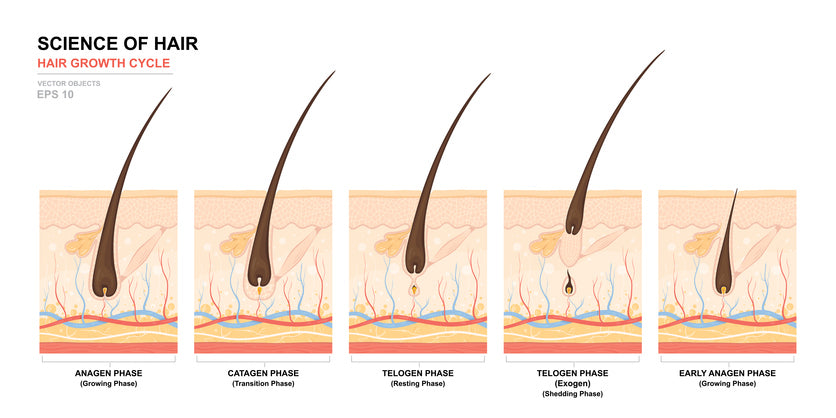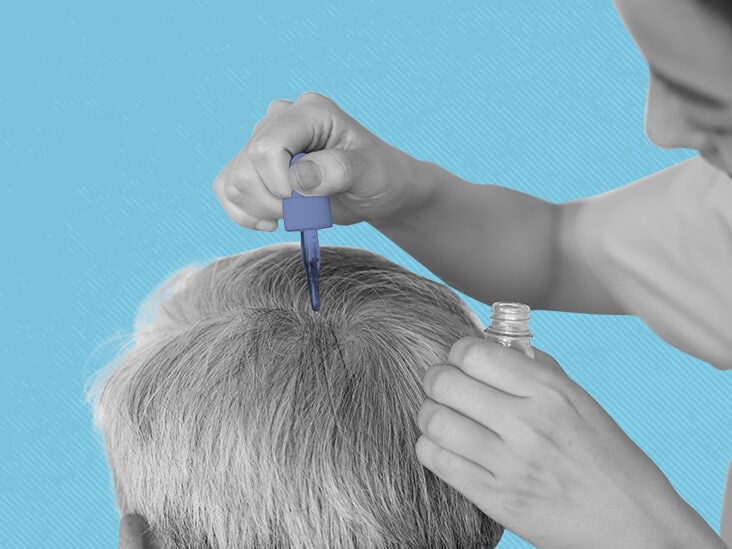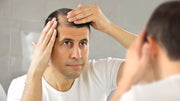Hair loss is a common issue that affects many men. According to the American Hair Loss Association, two-thirds of American men will experience some degree of hair loss by the age of 35. Losing hair can be a source of distress and impact one's self-esteem, causing feelings of insecurity and embarrassment. However, it's essential to know that hair loss is a natural part of the aging process, and there are steps that men can take to manage and deal with it. In this article, we will provide tips and advice for men who are experiencing hair loss, helping them to feel confident and empowered.
Understanding Hair Loss
Hair loss is a common condition that affects many men. It is estimated that up to 70% of men will experience some degree of hair loss during their lifetime. Hair loss can occur due to a variety of factors, including genetics, age, hormonal changes, stress, and diet.
Male pattern baldness is the most common type of hair loss in men, accounting for approximately 95% of cases. It is typically characterized by a receding hairline and thinning at the crown of the head. Other types of hair loss in men include alopecia areata, which causes patches of baldness on the scalp, and telogen effluvium, which is caused by a temporary disruption in the hair growth cycle.
Understanding the causes and types of hair loss is an important first step in addressing the issue. In the following sections, we will discuss tips and strategies for managing and dealing with hair loss in men.

Lifestyle Changes to Promote Hair Health
While some causes of hair loss are outside of our control, there are certain lifestyle changes that men can make to promote hair health and potentially slow down hair loss. Here are some tips:
-
Eat a healthy diet: A diet rich in vitamins and minerals is essential for maintaining healthy hair. Incorporate foods that are high in biotin, iron, and protein such as eggs, nuts, spinach, and lean meats.
-
Exercise regularly: Exercise improves blood flow and circulation, which can help deliver necessary nutrients to hair follicles.
-
Reduce stress: Stress can contribute to hair loss. Managing stress through practices such as meditation, yoga, or exercise can help reduce its impact.
-
Avoid harsh treatments: Certain hair treatments like frequent dyeing or using heat-styling tools can damage hair and contribute to hair loss. Try to limit these treatments or use them in moderation.
-
Get enough sleep: Adequate sleep is important for overall health, including hair health. Aim for 7-8 hours of sleep per night.
Making these lifestyle changes can improve hair health and potentially slow down hair loss in men. However, it's important to note that these changes may not be effective for all types of hair loss and it's important to consult with a healthcare professional for personalized advice.
Medical Treatments for Hair Loss
While lifestyle changes can certainly help promote hair health, some men may require medical treatments for hair loss. Two of the most common medical treatments are minoxidil and finasteride.
Minoxidil is a topical medication that is applied to the scalp. It works by increasing blood flow to hair follicles, which can promote hair growth. It is available over the counter and has been shown to be effective in slowing or stopping hair loss in some men. However, it may take several months of use to see results, and it is important to continue using it in order to maintain any new hair growth. Common side effects of minoxidil include scalp irritation and itching.
Finasteride is an oral medication that works by blocking the hormone responsible for hair loss in men. It is available by prescription only and has been shown to be effective in slowing or stopping hair loss in men with male pattern baldness. However, it is important to note that it may take several months to see results, and there is a risk of sexual side effects such as decreased libido and erectile dysfunction.
It is important for men to speak with a healthcare provider before starting any medical treatments for hair loss. A healthcare provider can evaluate their individual needs and determine the best course of treatment. They can also discuss potential side effects and any other concerns the individual may have.

Hair Styling Tips for Men with Thinning Hair
Hair styling can play a crucial role in minimizing the appearance of hair loss for men. Here are some tips and advice for men with thinning hair:
-
Short Haircuts: Short haircuts, such as buzz cuts or crew cuts, can be a great option for men with thinning hair. Short haircuts can create the illusion of thicker hair and are easy to maintain.
-
Layered Haircuts: Layered haircuts can also help create the illusion of thicker hair. Ask your hairstylist to add layers to your hair to create volume and texture.
-
Avoid Center Parting: Center parting can highlight thinning hair and make it more obvious. Consider changing your hair part to the side to create a fuller look.
-
Use Thickening Products: Thickening products, such as volumizing shampoos and conditioners, can help add volume to thinning hair. Look for products that contain keratin or biotin, which can help strengthen hair.
-
Blow-dry Technique: Blow-drying your hair in the opposite direction of the hair growth can create the illusion of thicker hair. Use a round brush to add volume and style.
-
Hair Fibers: Hair fibers, such as Toppik or Caboki, can be applied to thinning areas of the scalp to create the illusion of thicker hair. These fibers attach to existing hair and can cover up bald spots.
Remember, every man's hair is unique and what works for one person may not work for another. Experiment with different haircuts, styling products, and techniques to find what works best for you.
In conclusion, there are many hair styling tips and tricks that men can use to minimize the appearance of hair loss. Whether it's a short haircut, a volumizing product, or hair fibers, there are options available for men to boost their confidence and feel good about their hair.
Dealing with Emotional Impact
Hair loss can have a significant emotional impact on men. It can affect self-esteem, confidence, and even social interactions. It is essential to address the emotional impact of hair loss in addition to the physical aspects. Here are some tips for dealing with the emotional impact of hair loss:
-
Seek Support: Talking to loved ones or joining a support group can help you cope with the emotional impact of hair loss. There are many online and in-person support groups for individuals with hair loss, where you can connect with others who are going through the same experience.
-
Practice Self-Care: Take care of yourself by doing things you enjoy, such as hobbies or exercise. It is crucial to maintain a healthy lifestyle and do things that make you happy to boost your self-esteem and mood.
-
Consider Therapy: Seeking professional help from a therapist can be beneficial for dealing with the emotional impact of hair loss. A therapist can help you develop coping strategies and work through any negative emotions you may be experiencing.
-
Explore Hair Replacement Options: If hair loss is causing significant emotional distress, consider exploring hair replacement options such as wigs, hairpieces, or hair transplants. These options can provide a sense of normalcy and boost confidence.

In conclusion, hair loss can have a significant emotional impact on men, and it's important to address the emotional impact of hair loss in addition to the physical aspects. Seek support, practice self-care, consider therapy, and explore hair replacement options if necessary. Remember, hair loss is a common issue and there are ways to manage it effectively.
Conclusion
Hair loss can be distressing and impact one's self-esteem, but there are steps men can take to manage and deal with hair loss. In this article, we have discussed the causes and types of hair loss, lifestyle changes to promote hair health, medical treatments, and hair styling tips for men with thinning hair. We have also highlighted the emotional impact of hair loss and provided resources for finding support and coping with this issue.
It is important to remember that hair loss is a common issue and there are many options available to manage it. Whether through lifestyle changes, medical treatments, or styling tips, men can find solutions that work for them. If hair loss is causing emotional distress, it is important to seek support and find healthy coping mechanisms.
We encourage readers to share their own experiences and tips for managing hair loss in the comments below. Remember, by coming together and sharing our stories, we can help one another feel less alone and better equipped to deal with this issue.







